Overheard from the planet, umm, table next to me recently while sitting at a café;
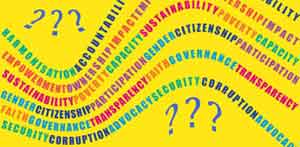
Buzzwords of Academia
“Often I see a common core representation of the information exposure delivery model with an achievable outcome of deliverables that best fits our pedagogy in increasing students’ knowledge of self and of work and learning options. These best practices in increasing student’s understanding of hegemony in the process of engaging incoming students in major exploration prior to their arrival on a college campus and allowing us to blend the marginalized into a better acknowledgement of cultural acceptance and awareness…”
Huh? I could feel the headache starting to come on….
I was, in fact, minding my own business for the most part, but the unintelligible pretension next to me was too much to ignore so I started to tune in. On an intellectual level I understood each and every word. I was able to process what was said; “dog,” “staircase,” “banana,” each word I knew, but while understanding such, when strung together, what the hell did I just hear? What are you meaning to say? It makes absolutely no sense! Is it even English?
So, it got me to thinking as I live in a college town and these sorts of discussions are pretty commonplace. Enough so, that it’s almost the norm and it’s easy to forget what simple, normal, regular, refreshing laymen’s speak is like. I looked around a bit and actually found there’s a coined term for this alternative form of English; “Academese.”
“Academese” – An artificial form of communication commonly used in institutes of higher education designed to make small, irrelevant ideas appear important and original. Proficiency in academese is achieved when you begin inventing your own words and no one can understand what you are writing or saying (as defined by the “Tameri Guide for Writers”). A “new language” used to communicate amongst each other that is so patronizingly littered with industry jargon, that it can only elicit two possible responses; the quizzical head-shaking of one who hears it, doesn’t get it, and feels they may be missing something, OR the nodding of heads in Jim Jones like, ‘drink-the-Kool-Aid,’ admiration by the very loyal followers that commit to such.
Now let me just qualify that this writing is in no way meant to be a condemnation of the academic institutions in our nation, nor those that work within. Bear in mind that it is written somewhat tongue-in-cheek, and that this may be seen as an attempt to take away people’s ‘boxes’ that they like to work within, but there is cause for something to think about. What’s said and communicated in the academic ranks today is a far different way of speaking, literally a different form of communication than in the ‘work place’ of America.
This may not be ‘news’ as it’s really nothing new, but what IS new is how divergent in recent years the language chasm has evolved? Realizing this, and that it is our nation’s preparation of a new generation for the work force, does bring to mind the question, are the college grads indeed being best served by those who steward?
David Foster Wallace is quoted as saying; “I regard Academic English not as a dialectal variation but as a grotesque debasement of Standard Written English, and loathe it even more than the stilted incoherencies of Presidental English… or the mangled pieties of ‘Business Speak….’ and in support of this utter contempt and intolerance I cite no less an authority than Mr. G. Orwell, who 50 years ago had Academic English pegged as a ‘mixture of vagueness and sheer incompetence’ in which ‘it is normal to come across long passages which are almost completely lacking in meaning.’” – Harper’s Magazine, April 2001
Time in college & university is frequently some of the most intellectually stimulating years of one’s life. Unfortunately, it also means navigating an exhausting and expansive gauntlet of ever increasing pretense and jargon that is a verbal exercise of intellectual leap-frog, if you will. Let’s examine a few of the now ubiquitous linguistic words & phrases of the academic elite, in no particular order;
“Giving 110%” – When you hear this said, you’re basically hearing someone yelling that they’ve failed 3rd grade math! Effort’s certainly measurable but 100% is everything! You can give no more! Your ‘everything,’ no matter what it consists of, is 100%, that’s it! Such a cliché expression and because ‘everything’ is ALL you can give, if you’re claiming it, you’ve essentially duped someone into expecting less so that anything more can be perceived as that ‘110%!’ If that’s the case, you’ve still only given, at most, ‘everything,’ or 100%! Even if you were to clone yourself, then you’d be expected to give 100% x 2. At 110% you’ve then failed by 45%. See the maths!?
“Reach Out” – this has become a mainstay in the language of wanting or needing to include others. Jargon for, “let’s set up a meeting” or “let’s contact this person.” Just say that. Use your words people!
“Leverage” – This is the granddaddy of all when it comes to nouns converted to verbs, second only to Facebook as in, ‘facebook me!’ ‘Leverage’ is sweepingly used as a pseudo-verb to describe how manipulation can be applied to a situation. Should be a noun and remain such.
“Think Outside the Box” – This is a ridiculous and overly used phrase coined by the consulting industry and then adopted by academia long after it had already become cliché. No one thinks ‘inside’ the box anymore! They’re not allowed to! This tired cliché means to approach a problem or situation in an unconventional fashion. How about this? Just think! Get rid of the box!!!
“Best Practice(s)” – Ugh! I can’t go an hour without seeing or reading about someone asking for best practices! This refers to a method or technique that is supposed to deliver ‘superior results’ compared with other methods and techniques. But who knowingly uses ‘mediocre practices’ and who defines what’s ‘best?’ Singularly one of the most pompous linguistic confections sprinkled over the industry. Particularly annoying is the fact that it flows like cocaine in ‘Tony Montana’s’ house in the movie “Scarface.”
“Deliverables” – Deliverables? Really? How and when did this become the term for a finished product? Granted, it does sound sexy in the meeting; “why yes, the student deliverables are in the final stages.” Proposals, workshops, brochures, whatever the case may be, just say what you mean instead of trying to make it sound more important than it is.
“Multi-Tasker” – Let’s give this one its LONG overdue resting place. Multi-tasking is doing a lot, poorly. Simple. Sadly, it’s used waaay too often as a badge of honor; “I’m so busy but I’m multi-tasking to get the job done.” In saying such, you’re telling people two things; 1) that your time management is essentially poor so you’re scratching at a lot of things at once, and 2) you may be ‘getting a lot done’ but nothing particularly well done! No matter the accolades for your heroic undertakings, quantity kills quality. This phrase really needs to be sent to the dust-bin.
“Empower” – Everything and everyone is always being ’empowered.’ Sounds good on the surface but what’s not realized is that this overly used verb basically says “you’re allowed do a little bit of this, but I’m still in charge here. I am empowering you.” Essentially tasked by someone above you in pay grade when they would like you to do a job of some importance. It’s also called the ‘most condescending transitive verb’ ever. If ever you hear this platitudinous request directed your way, duck, ’cause you’re being talked down to but you’re NOT supposed to realize such….
“Irregardless” – This is the only ‘word’ on this list that isn’t actually a word! Please; if you mean ‘regardless’ or ‘irrespective,’ say such! All too often, these are now combined, so much to the point that somehow this bastardized amalgam of the English language seems to have made a place in our vocabulary. Once, at a campus-wide meeting, I listened to the Dean of the School of Education let this one fly in the presentation. No one said anything but you could hear the collective gasp!
“Buy-In” – This means agreement on a course of action. Sadly, it is laced with a disingenuous undertone. Notes David Logan, professor of management and organization at the University of Southern California’s Marshall School of Business: “Asking for someone’s ‘buy-in’ says, ‘I have an idea. I didn’t involve you because I didn’t value you enough to discuss it with you. I want you to embrace it as if you were in on it from the beginning, because that would make me feel really good.’”
“Cultural” – Sure, “cultural” is already a relatively common word, but academics tend to let it flow as freely as a Porsche on the German Autobahn. Presumably, this is because they want their oft-captive audiences to think them ever so worldly and knowledgeable. Its use is never ending as a shameless inclusion and plug; “we’re off for a cultural meal!” “I have a cultural meeting to attend.” “The get together was so cultural in nature…!”
“Dichotomy” – The ubiquity of “dichotomy” understandably happens due to its near-universal relevance as conveniently it can be made to have context in anything & everything. Every class and degree path guarantees studying at least one! That being said, the good thing is that once you’re done with your degree and have graduated, you’ll not hear the word again and can forget it exists.
“Diaspora” – As a concept, it is entirely necessary for students to understand the social, political, anthropological, sociological, psychological, geo-political and economic elements of the word and how it relates to the world around them. Just don’t confuse it with ‘diorama’ as the art majors have a hold on that one!
“Empirical” – Visible, tangible, simple as that! No matter one’s major, he or she will likely encounter “empirical” over and over and over and over and over and over and probably over again until you’re using it everywhere unbeknownst as we do in the word “like;” “hold on, I’m going to get my empirical example of a sandwich.” Granted, it can be an essential component of debate and rhetoric, but would it kill professors to use a few synonyms for variety’s sake?
“Hegemony” – There exists no aesthetically sexier term than “hegemony.” But college students know all too well that even hotness with a touch of Marxism gets tiresome after repeated exposure, especially if it keeps hammering out the exact same points. We get it! (Wikipedia definition) “Cultural Hegemony describes the domination of a culturally diverse society by the ruling class, who manipulate the culture of the society — the beliefs, explanations, perceptions, values, and mores — so that their ruling-class worldview becomes the worldview that is imposed and accepted as the cultural norm; as the universally valid dominant ideology that justifies the social, political, and economic status quo as natural, inevitable, perpetual and beneficial for everyone, rather than as artificial social constructs that benefit only the ruling class.” Huh?
“Collaborate” – If your department head or supervisor says ‘you need to collaborate,’ they are telling you, without telling you, that they are not entrusting you on you own to handle the task at hand and there remains better or more credible sources elsewhere so “reach out” (see above) and get them involved!
“Marginalized” – Marginalized and education walk arm-in-arm on the way home every night. Like plenty of other terms highlighted here, few will deny that “marginalized” doesn’t have its place at the table too. The fringes of society should be heard and have a place but with the frequency of its application, students also have the right to hear the idea relayed with different words, and there’s a numbness growing to its use as ‘everything is now in the margins.’
“Pedagogy” – Good luck getting those first-years (remember, “freshman” is a tired, old anachronism) to listen to anything attached to this in a sentence. While it actually sports a simple, straightforward definition; one more easily conveyed using layman’s terms, people will spend more time wondering if the second ‘g’ is pronounced ‘gee’ or not?
Very few classrooms, not to mention the institutions themselves, around the nation provide effective career readiness curriculum and understanding that actually demonstrate career decision-making models that show students how to analyze, evaluate, decide, set career plans while in the midst of their studies and then tangibly put them into action. There is a huge gap, a chasm if you will, between academic institutions and what they provide, and what the employment market on the other side of the fence is actually looking for?
The interesting thing is that the institutions don’t see this or see it in varying degrees of acceptance and, as the saying goes; ‘they don’t know what they don’t know?’ The language, as mentioned in this writing, is part & parcel to the divide. You might even say “empirical” evidence, from the list above.
People don’t communicate like this off campus, after graduation. Not recognizing such shows a great anachronism in the teaching, the preparing of our nation’s youth, the college grad, for their next endeavor; adulthood and the employment that comes packaged with such.
Until ‘life after college’ connection permeates every department and academic major on the nation’s campuses, this divide will be evident and students leaving with their degrees in hand, wet-behind-the-ears being told, “You’re going to be great! Do great things! You’re you!” and other such cliché and empty accolades, the divide will continue in its evidence and the students, now graduates, will be looking back asking “why did I pay for that!?
So the next time you hear someone mentioning the need to “reach out,” “touch base,” “shift a paradigm,” “leverage a best practice” or worse “join a tiger team,” please kindly lean in and tell them to ‘do it!’ Just don’t let them say they’re doing it!

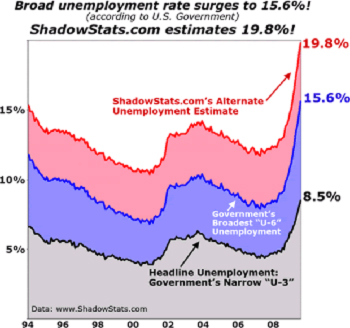 Hungry? Imagine being served your multi-course dinner by a Ph. D. in Pharmacology, or getting your burrito delivered by an experienced human resources professional. Both of these scenarios are very real. Both of these individuals, one a friend, the other an acquaintance, lost jobs due to economic downturns at their respective organizations and both have taken jobs, simply to pay the bills, while they seek out new opportunities in their chosen professions.
Hungry? Imagine being served your multi-course dinner by a Ph. D. in Pharmacology, or getting your burrito delivered by an experienced human resources professional. Both of these scenarios are very real. Both of these individuals, one a friend, the other an acquaintance, lost jobs due to economic downturns at their respective organizations and both have taken jobs, simply to pay the bills, while they seek out new opportunities in their chosen professions.
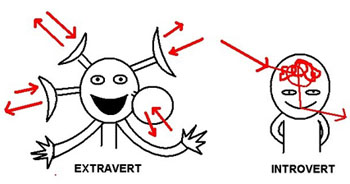
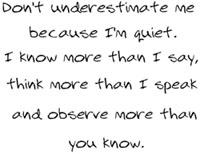

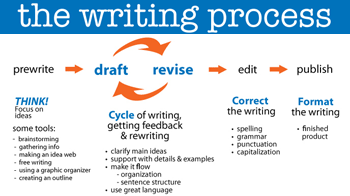




Please Share Us!